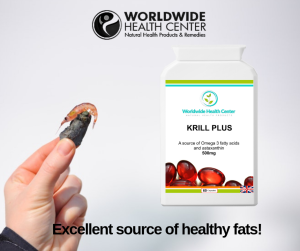BENEFITS OF TAKING MULTIVITAMINS
BENEFITS OF TAKING MULTIVITAMINS
Are there any benefits of taking Multivitamins?
It is often difficult to find an ‘off the shelf’ multivitamin and multimineral product that can truly help to optimize health. This product contains high potency B-vitamins that support mood and energy production; as well as a cocktail of antioxidants including vitamin C, including phytonutrient antioxidants such as lycopene, lutein, chlorella, spirulina, black radish, pine bark extract, green tea, apple pectin and citrus bioflavenoids.
HMD MULTIS is a doctor-formulated, clinically tested multivitamin and multimineral formulation designed to provide you with optimum levels of vitamins and minerals in a daily dose, without the need to take large quantities of capsules every day. By taking just three capsules daily you can rest assured that you will be getting the vitamins and minerals your body needs.
Here are some of the benefits taking a high dosage multivitamin and multimineral formulation:
- Support healthy aging. As you get older, your body has a harder time absorbing nutrients from food. At the same time, your nutritional needs increase.
- Correct nutritional deficiencies caused by prescription drugs and surgery and nutritionally wasting health conditions such as diabetes. Along with aging, there are several other factors that can make you more susceptible to nutritional deficiencies, including these common culprits.
- Improve short-term memory. According to a meta-analysis of 10 randomized, placebo-controlled trials, taking a daily multivitamin can result in improvements in short-term memory.
- Boost energy levels. Several studies have demonstrated that taking a daily multivitamin and mineral supplement is associated with increased energy levels.
- Detoxify your body. The robust levels of minerals, antioxidants and B-complex vitamins present in a high-quality daily multivitamin help clear toxins from the body, facilitate enzymatic reactions required for detoxification, and keep the liver and other organs in tip-top shape.
- Maintain muscle strength. Many of the problems with muscle aging are associated with free radical damage, and an antioxidant-rich daily multivitamin can help keep free radicals in check. Vitamin D has also been shown to improve muscle strength in older people.
- Prevent falls. Numerous studies have found that a daily multivitamin and mineral supplement – particularly one with therapeutic dosages of vitamin D (at least 1,000 IU) and calcium (1,000 mg)—can improve balance and reduce risk of falls.
- Restore sense of smell. Anosmia, the inability to detect odours, can be caused by a deficiency of zinc. Low levels of vitamins B12 and A along with copper are also associated with changes in sense of smell (and taste).
- Protect against hearing loss. Several studies have found a correlation between hearing loss and deficiencies in B-complex vitamins. A more recent study also found that people with elevated homocysteine levels had a 64 percent increased risk of hearing loss, and the best way to lower homocysteine levels is with B-complex vitamins.
- Improve your skin. Research has shown that beta-carotene and vitamins C and E are important for maintaining healthy, younger-looking skin.
- Prevent asthma and allergies. People with asthma and those prone to allergies often have depleted levels of vitamin C, zinc, selenium and magnesium.
- Prevent diabetes complications. As I mentioned earlier, diabetes is a nutritionally-wasting condition, putting those who have it at dramatically increased risk of other problems (or complications)—especially ones that affect the eyes, nerves, blood vessels, kidneys and extremities. The best way to prevent these complications is by taking a potent, daily multivitamin and mineral supplement.
- Boost mood. Many studies have found that a daily multivitamin has positive effects on mood and emotional well-being.
- Manage Stress. Along with boosting mood, research has shown that a daily multivitamin – particularly one containing therapeutic dosages of B-complex vitamins -can help reduce stress and anxiety.
- Enhance weight loss. A randomized, double-blind study of obese women found that those taking a daily multivitamin and mineral supplement lost an average of 7.9 pounds, compared to 2 pounds for those taking calcium and half a pound in the placebo group.
- Improve sexual function. The organs and glands that are responsive to sexual hormones are particularly vulnerable to free radical damage, so taking an antioxidant-rich daily multivitamin can help ensure peak performance and function
- Prevent dry eyes. Most people know that vitamins, especially antioxidants, are essential for maintaining overall vision. But by the time you reach age 65, a lifetime of free radical damage has taken its toll, and our eyes produce (on average) 40 percent less lubrication. That’s why shoring up on these crucial nutrients can help correct or prevent the problem from developing in the first place.
- Stop telomere erosion. Chromosomes are tightly coiled, rod-like structures made up of proteins and one double-helix–shaped molecule of DNA encoded with your genome: the blueprints for your growth, development and physiological function. And at the tips of every chromosome are protective “caps” called telomeres, which naturally get shorter as we age. Research has found that taking a daily multivitamin can help slow and even reverse this erosion. We now know from the human genome project and the field of NutriGenomics that multivitamins can actually switch on and off mutant genes or single nucleotide polymorphisms that may predispose us to certain diseases.
- Reduce cravings for alcohol. Research suggests that people who have problems with alcohol can often gain better control over their drinking by making sure they have adequate levels of B-complex vitamins, calcium and magnesium.
- Prevent dental problems. Vitamin C plays a key role in the prevention of gum disease, as it helps maintain the integrity of the supporting structures of the oral tissues. Other antioxidants, including vitamins A and E as well as selenium, have also been shown to improve the health of the gums. Perhaps even more important is zinc. This mineral stabilizes cellular membranes and inhibits plaque growth. Deficiencies in both zinc and vitamin A are also common in patients with periodontal disease.











Add comment